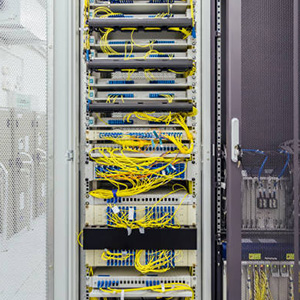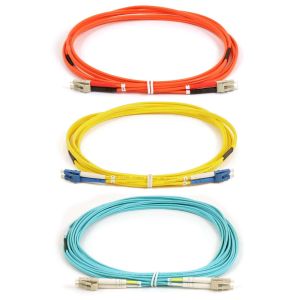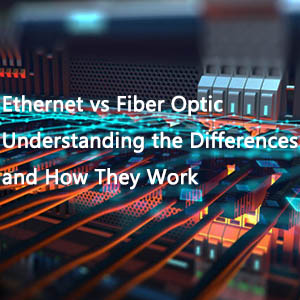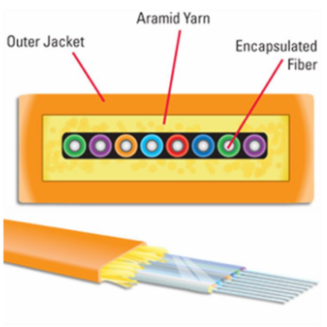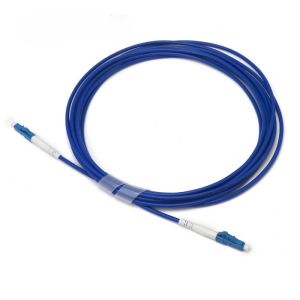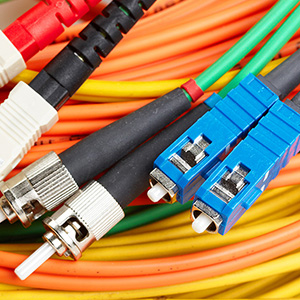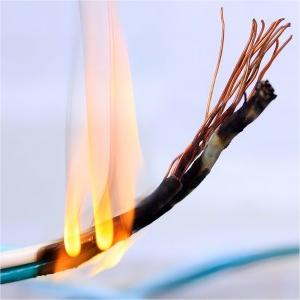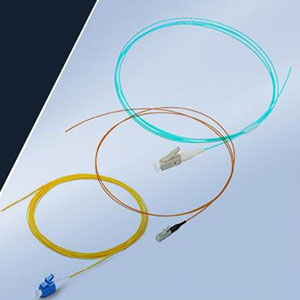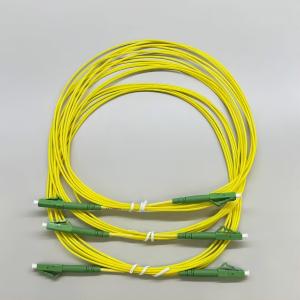As we all know, when installing fiber optic patch cords, we must pay attention to the fact that the bending amplitude of the cable cannot be greater than its bending radius, otherwise light leakage will occur and cause loss. As shown in the figure below, the greater the bending amplitude, the greater the loss of the optical signal. Then, this kind of fiber optic patch cord is undoubtedly not suitable for the high-density wiring area of the data center. How to solve the high-density wiring problem in the data center? Bend-insensitive fiber optic patch cords are an ideal solution for high-density wiring. They have excellent bending resistance and the same mechanical and optical properties as ordinary fiber optic patch cords.

What is the bend radius?
The bending radius refers to the maximum degree of bending when the optical cable can maintain its normal working performance. The smaller the bending radius, the better the bending resistance of the optical cable. Normally, the static bending radius of the optical cable is 10 times the outer diameter of the optical cable, and the dynamic bending radius is 20 times the outer diameter of the optical cable. The bending radius of ordinary optical fiber patch cords on the market is generally 30mm, while the bending radius of bend-insensitive optical fiber patch cords is much smaller, only a few millimeters. There are two main types of bend-insensitive optical fiber patch cords: bend-insensitive single-mode optical fiber patch cords and bend-insensitive multimode optical fiber patch cords.
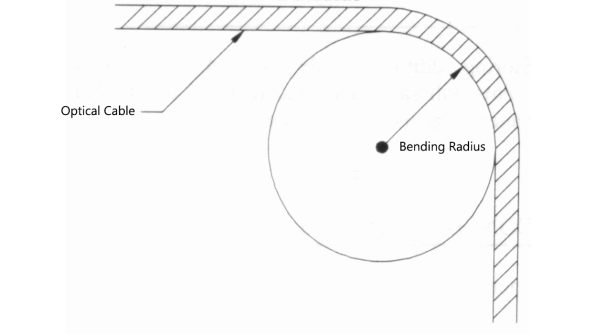
Bend Insensitive Single Mode Fiber Patch Cables
Bend-insensitive single-mode fiber optic patch cords have greatly improved their bending performance through optimized design. ITU standard G.657 now specifies two different bend-insensitive single-mode fiber optic patch cords: G.657 A and G.657 B. These two fiber optic patch cords can be further subdivided into G.657.A1, G.657.A2, G.657.B1 and G.657.B2. The minimum bending radius of the G.657.A1 patch cord is 10mm, the minimum bending radius of the G.657.A2 and G.657.B2 patch cords is 7.5mm, and the minimum radius of the G.657.B3 patch cord can reach 5mm.
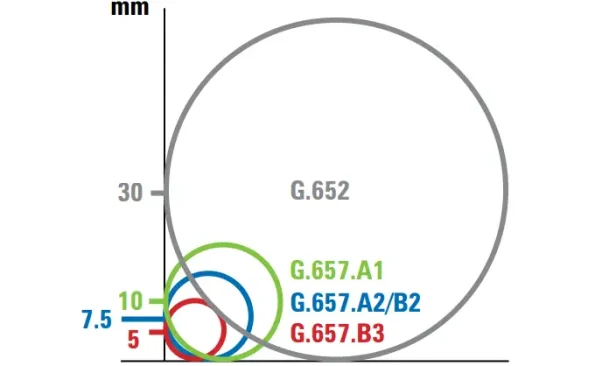
Compared with G652 patch cords, G.657 single-mode bend-insensitive patch cords are more flexible in application and can be installed in a variety of forms. They are widely used in today’s data centers.

Bend-Insensitive Multimode Fiber Patch Cable
The minimum bend radius of the bend-insensitive multimode fiber patch cable is 7.5mm. It has a special optical “groove” design between the core and the cladding. Compared with traditional multimode fiber patch cables, these grooves can retain more light.
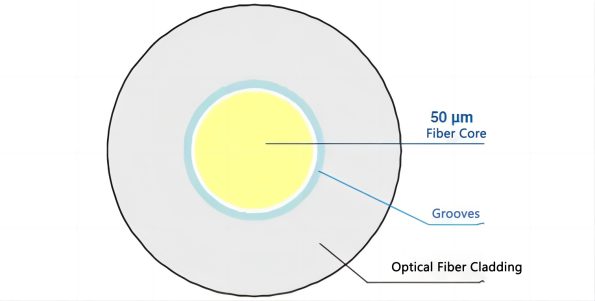
It is worth mentioning that the original intention of the design of bend-insensitive multimode fiber optic patch cords was to meet the needs of FTTH applications. Now, bend-insensitive multimode fiber optic patch cords are increasingly used in high-density wiring areas of data centers.
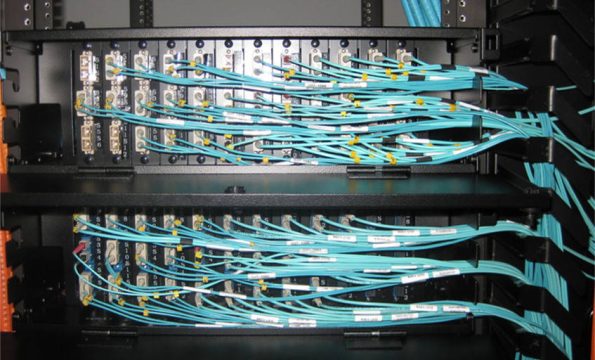
With the increasing popularity of high-density applications, bend-insensitive fiber patch cords are playing an increasingly important role. “FiberLife” supplies a wide variety of bend-insensitive multimode fiber patch cords (OM2/OM3/OM4) and bend-insensitive single-mode fiber patch cords (OS2). In addition to their extremely high bending resistance, these bend-insensitive fiber patch cords also have the same mechanical and optical properties as ordinary fiber patch cords. Our products are all factory-tested and quality-assured. The outer sheath material, patch cord length, connector joint, color, etc. can all be customized.

